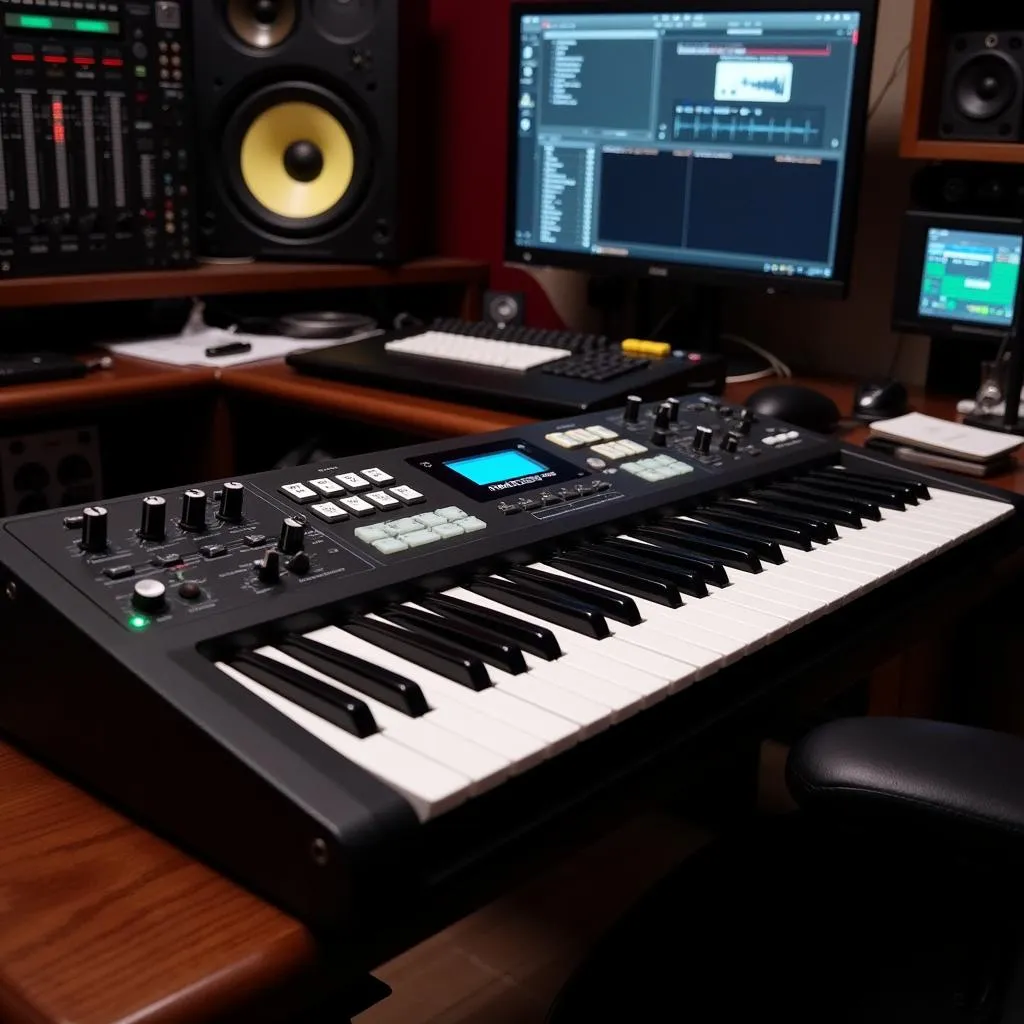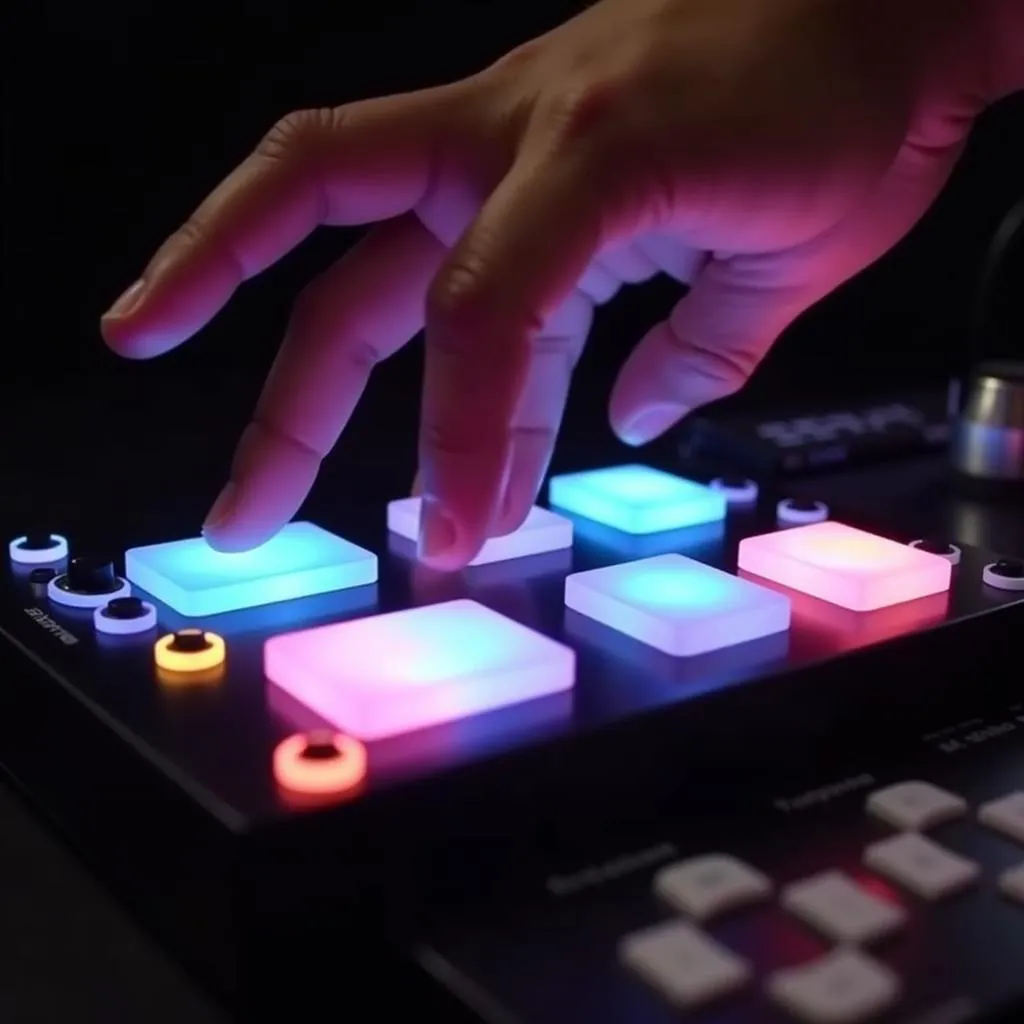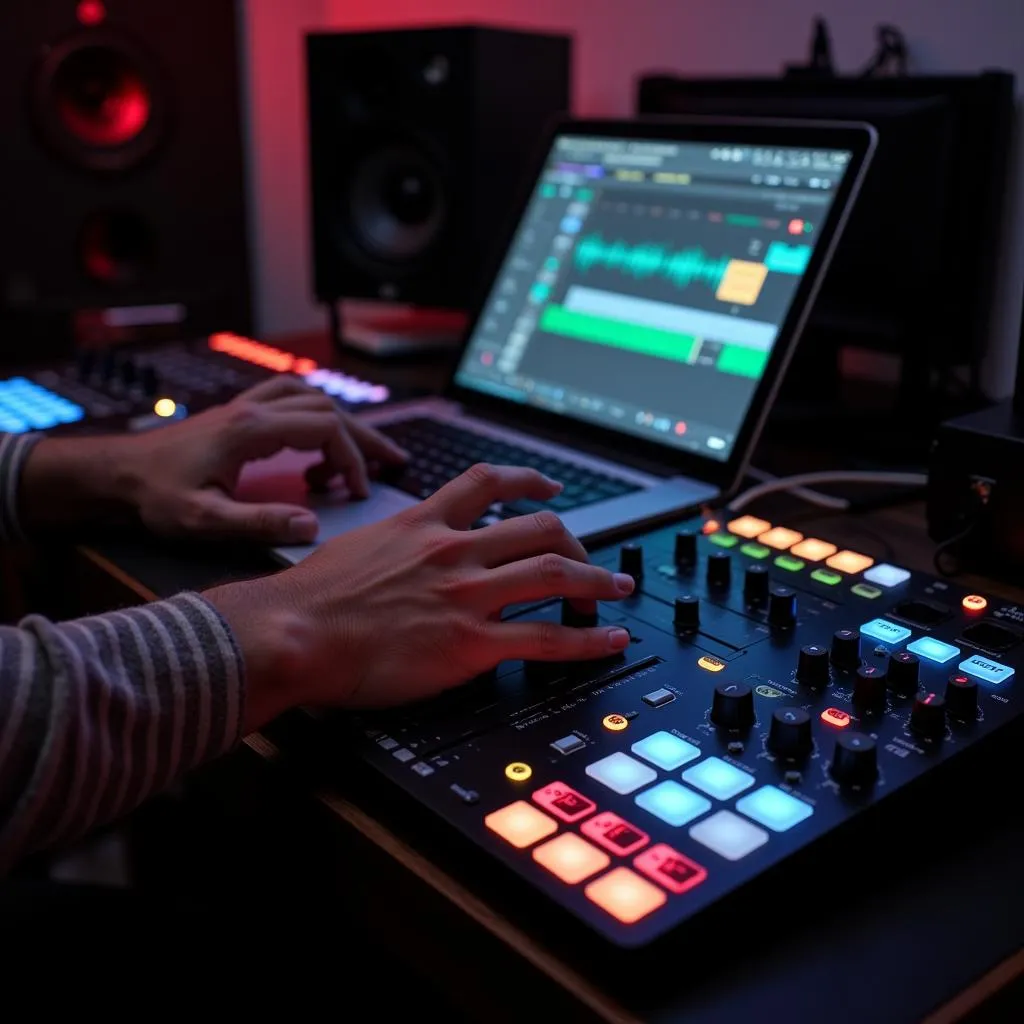Sound Controllers: The Unsung Heroes of Music Production
October 9, 2024Sound Controllers are essential tools for music producers, musicians, and DJs. These devices allow you to manipulate sound in countless ways, from tweaking EQ settings to triggering samples and loops. Whether you’re a seasoned pro or just starting, understanding the power of sound controllers can unlock new levels of creativity in your music.
Types of Sound Controllers
There’s a wide variety of sound controllers available, each designed for specific needs and workflows. Let’s explore some of the most popular types:
MIDI Keyboards
 MIDI keyboard in a music studio
MIDI keyboard in a music studio
MIDI keyboards are the workhorses of music production. They come in various sizes with different numbers of keys and often feature additional controls like pads, knobs, and faders. MIDI keyboards don’t produce sound themselves; they send MIDI data to your computer software or hardware synthesizers, allowing you to play virtual instruments, trigger samples, and control parameters.
Pad Controllers
 Finger drumming on a pad controller
Finger drumming on a pad controller
Pad controllers are popular among beatmakers and electronic music producers. They feature a grid of pressure-sensitive pads that can trigger drum sounds, samples, or loops. Many pad controllers also include additional features like arpeggiators, sequencers, and effects, making them powerful tools for live performance and improvisation.
Control Surfaces
 Mixing music with a control surface
Mixing music with a control surface
Control surfaces provide tactile control over digital audio workstations (DAWs) like Ableton Live, Logic Pro, and Pro Tools. They typically feature motorized faders, knobs, and buttons that map directly to parameters within your DAW software. This hands-on control can speed up your workflow and make the mixing and automation process more intuitive.
Choosing the Right Sound Controller
The best sound controller for you depends on your specific needs, budget, and music production style. Consider these factors when making your decision:
- Workflow: Do you primarily work with virtual instruments, samples, or live audio?
- Software/Hardware Compatibility: Ensure the controller is compatible with your DAW or hardware setup.
- Features: Determine which features are most important for your workflow, such as pads, knobs, faders, or transport controls.
- Size and Portability: Consider the size and weight of the controller, especially if you need something portable for live performances.
Benefits of Using Sound Controllers
Sound controllers offer numerous advantages over using a mouse and keyboard alone:
- Enhanced Creativity: The tactile nature of sound controllers can inspire new ideas and sonic explorations.
- Improved Workflow: Hands-on control allows for faster and more intuitive parameter adjustments.
- Expressive Performance: Sound controllers provide greater control over dynamics, articulation, and expression.
- Live Performance Potential: Many sound controllers are designed for live use, triggering loops, samples, and controlling effects.
Conclusion
Sound controllers are invaluable tools that can significantly enhance your music production and performance capabilities. By understanding the different types available and choosing the right one for your needs, you can unlock new levels of creativity and take your music to the next level.